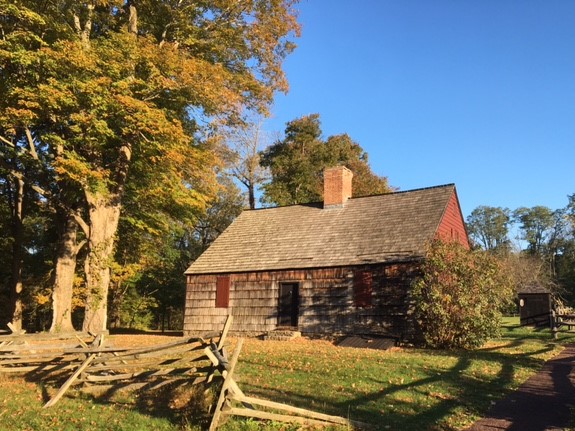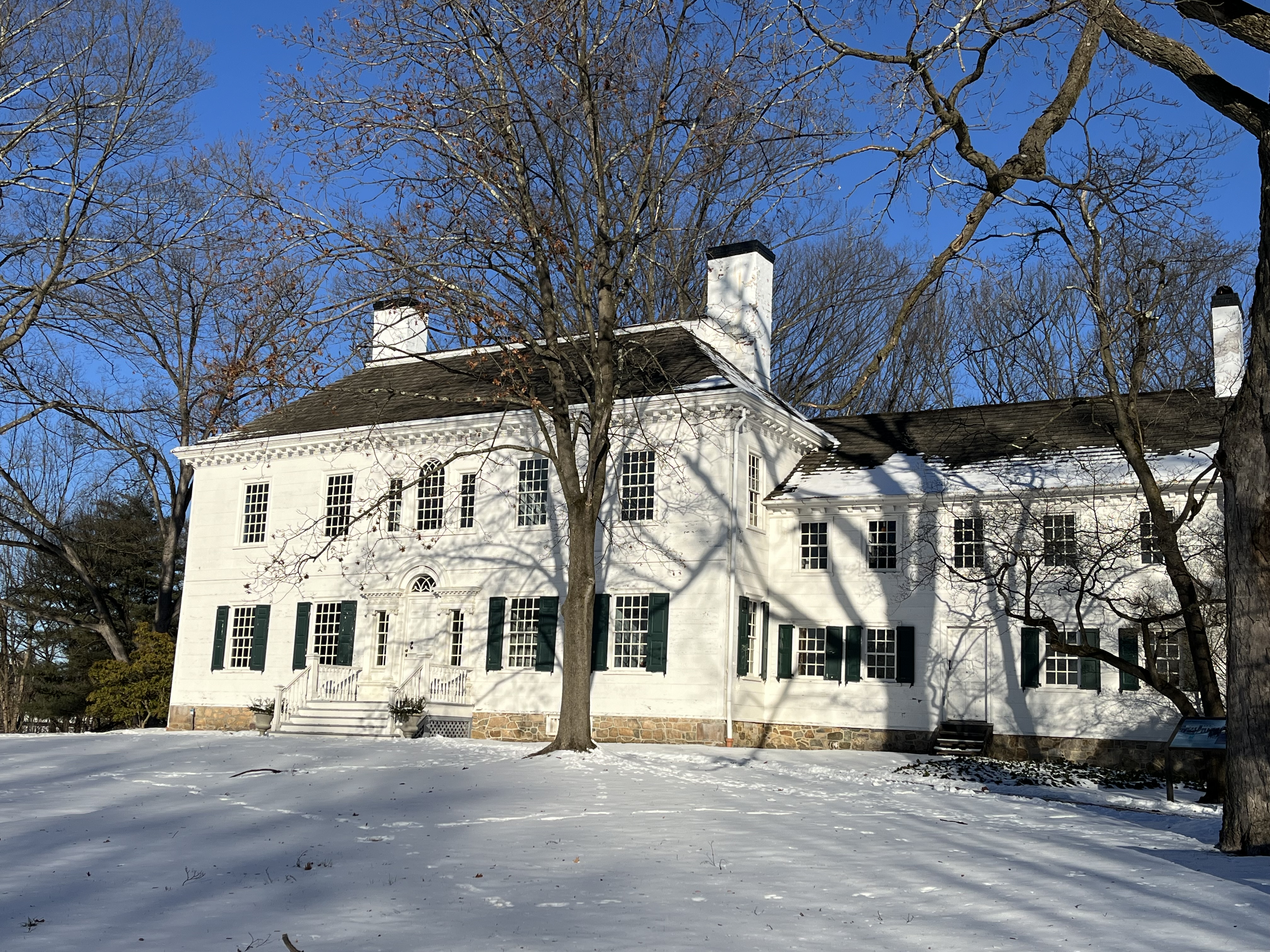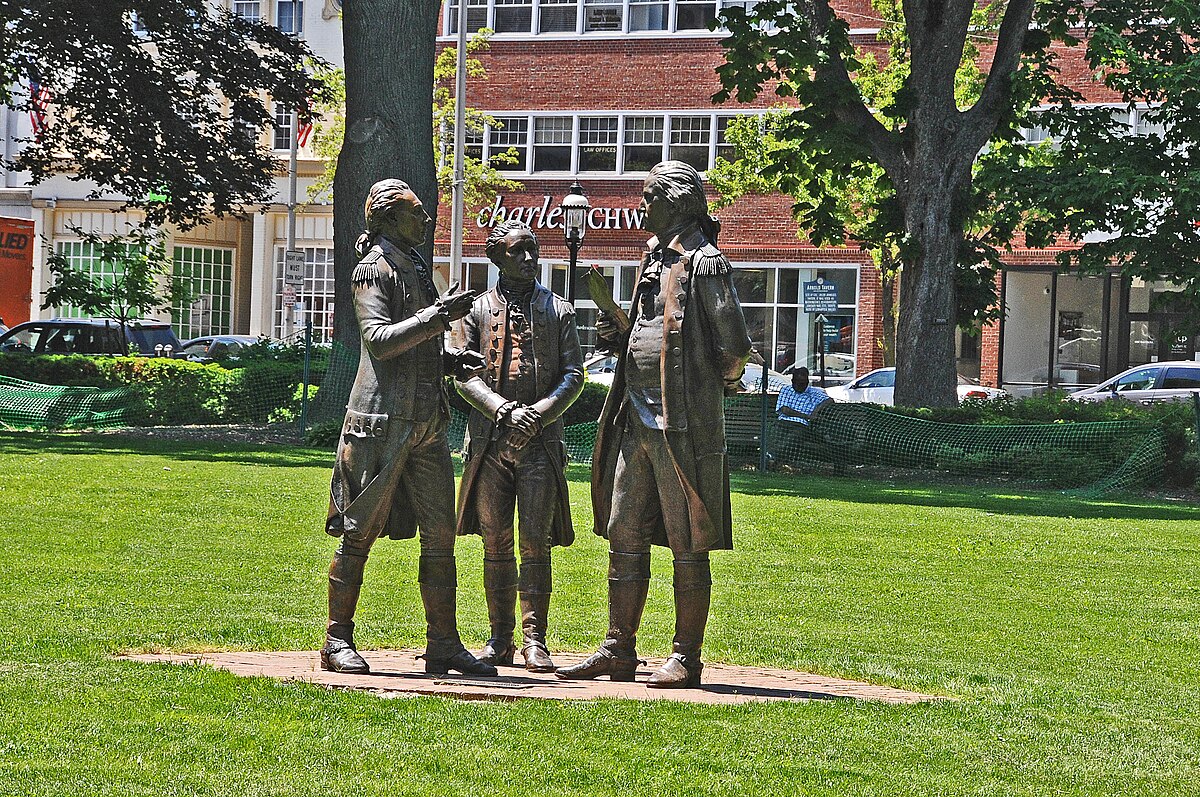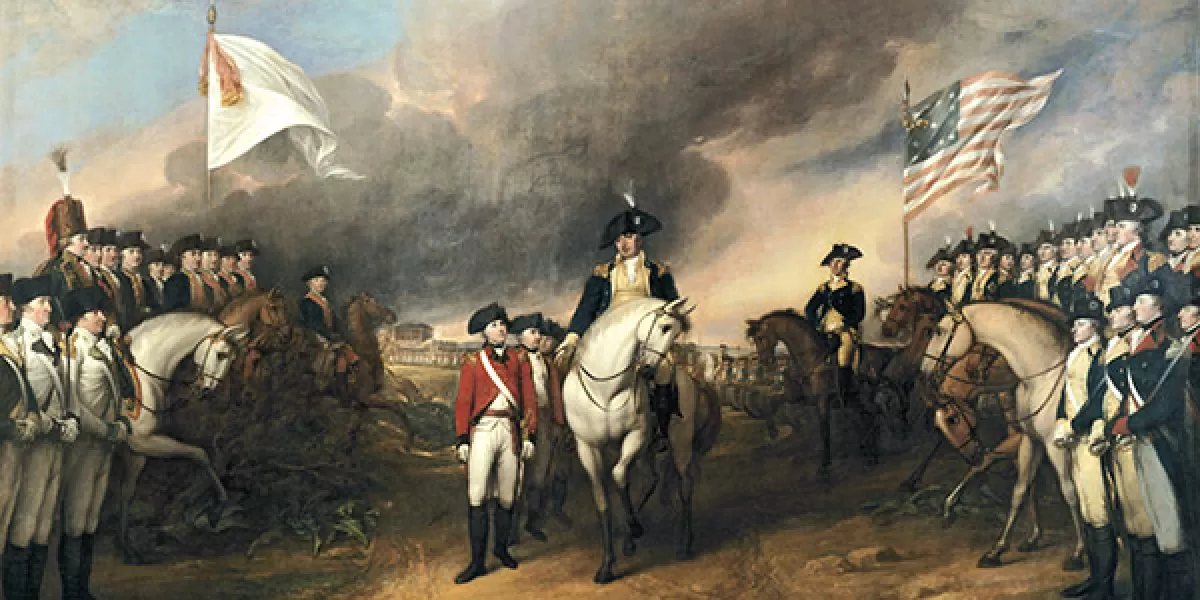Strategic Overview - Why Trump Is Right on Iran - March 2, 2026
In this Monday night live discussion, Mike Steger and special guest Bruce Director (a longtime collaborator in LaRouche-related strategic work)
Next year marks the 250th anniversary of our Declaration of Independence, but we're facing the same British imperial enemy our founders fought. This July 4th offers the chance to forge alliances that can finally defeat them.

Next year, on July 4th, we celebrate the 250th anniversary of the adoption of our Declaration of Independence from the British tyrant King George III. Already in June of this year, we celebrated the 250th Anniversary of the US Army.
Today, July 3rd President Trump will be speaking on the Iowa Fairgrounds, kicking off a grand celebration of our nation’s history which has been distorted and hidden from most Americans.
I’m honored to join President Trump TOMORROW as we kick-off America’s 250th birthday celebration!
— Monica Crowley (@MonicaCrowley) July 2, 2025
Thrilled to speak before the President’s remarks & help honor American leadership, strength, history, patriotism & pride!
Join us: @America250 https://t.co/YmCJEG3H33 pic.twitter.com/kwZhljVtlq
The conflict in the world is not between the USA and Russia and China. The major conflict in the world since the American Revolution has been between the American System of Political Economy of Alexander Hamilton and his successors, Friedrich List and Henry C. Carey, on the one hand, and the Anglo-Dutch imperial system of Adam Smith, John Locke and John Maynard Keynes, on the other hand. But few know this real story.
I grew up in Mendham, New Jersey, a small town with a population at the time of about 1500. Our house was within several miles of Morristown, New Jersey, which was the site of George Washington’s Headquarters. We also lived within several miles of Jockey Hollow, where the Continental Army wintered in 1777 and in 1779.

Today, we are facing the same enemy as we did during the American Revolution. The key to victory as during the American Revolution is the creation of an international alliance to defeat the British Empire, and the continuous bold courage, and relentless inspired creativity of our leaders.
Back then, thanks to the diplomatic work of Benjamin Franklin, the League of Armed Neutrality was formed in support of the American Revolution against the British Empire. Russia, in particular, was a prominent member of the League of Armed Neutrality.
Two other nations actually engaged in military operations against the British – France, in direct coordination with the Continental Army, and Spain, which joined the war in 1779 and launched an offensive against the British along the Gulf Coast under the leadership of Bernardo de Galvez. Volunteers from other nations including Germany (Baron von Steuben and Baron Johann de Kalb) and Poland (Casimir Pulaski and Tadeusz Kosciuszko) joined in support of the American Revolution against the British East India Company, which had been officially established as the core of the British Empire in the Treaty of Paris in 1763.
Morristown, N.J., has been aptly called “the military capital of the American Revolution.” George Washington first visited Morristown in 1773 a few years before the Revolution began. It was first settled in 1715 and Morris Country was created in 1739.
The Continental Army camped in Jockey Hollow situated a few miles from the center of Morristown during two winters. The first winter was in 1777 following Washington's Christmas Delaware River crossing and victories at Trenton and Princeton.
The second time was the winter of 1779-1780, during which time they endured the cruelest winter of the war, even crueler than the one at Valley Forge two years before.
Morristown was selected by Washington as his headquarters due to its strategic location. It was protected by two natural barriers, the Watchung Mountains and the Great Swamp, both of which stand between New York and Morristown, and by extension, Philadelphia. Jockey Hollow was several hundred feet above the British to the East so the mountainous range allowed Washington's troops to spot British movement, thus excluding the possibility of a surprise attack. The location was also chosen because the surrounding area held citizens that supported the revolution.

Washington’s headquarters in Morristown.
During the winter of 1779-1780 in Morristown, the fate of the revolution was in doubt. Washington himself wrote a letter to the colonies on December 16, 1779 reporting that the situation was “alarming,” adding that he and his men had “never experienced a like extremity at any period of the War.” They were “entirely destitute of money,” and he feared that “the Army will infallibly disband in a fortnight.”
On January 3, 1780, the encampment was hit by “one of the most tremendous snowstorms ever remembered. No man could endure its violence many minutes without danger of his life,” an army surgeon James Thacher wrote. On January 8, Washington wrote: “For a Fortnight past the troops both officers and Men, have been almost perishing for want.” In a letter dated March 17, 1780 to the Marquis de Lafayette, Washington wrote: “…the oldest people now living in the country do not remember so bad a winter as the one we are now emerging from. In a word the severity of the frost exceeded anything of the kind that had ever been experienced in this climate before.”
General Johann de Kalb wrote that it was “So cold that the ink freezes on my pen, while I am sitting close to the fire. The roads are piled with snow until, at some places they are elevated twelve feet above their ordinary level.”
Under these conditions there was an ongoing threat of mutiny. On January 5, 1780, General Nathanael Greene wrote: “The Army is upon the eve of disbanding for want of provisions.”
In late December 1779 the entire Pennsylvania contingent of the army organized a mutiny and was planning to march on Philadelphia to demand back pay. They had not been paid in over a year. In preparation for that march, the mutineers spent several days stealing horses for the march.
Nearby Jockey Hollow where the Continental Army camped, a local woman by the name of Tempe Wick hid her horse in a bedroom in her cabin to prevent it from being seized by the mutineers. Her courage and patriotism are immortalized to this day. Her cabin stands at the entrance to the camp grounds.
The prospects for winning the American Revolution were thus as dire, if not more dire, than the prospects for defending our Republic today as it looked in January of 2021. We are fighting the same British enemy and its Tory allies in the USA itself. And yet within a short period of time the fortunes of the American Revolution reversed dramatically, much like November of 2024.
On May 10, 1780 the Marquis de Lafayette arrived in Morristown to inform Washington that France would be sending ships and trained soldiers to aid the Continental Army. Today there is a monument on the Green in downtown Morristown entitled “The Alliance” which features George Washington, Alexander Hamilton and the Marquis de Lafayette.

The Alliance Statute in Morristown.
Fourteen months later, in late August 1781, Washington assembled his army of two or three thousand men in a small town named Chatham just to the East of Jockey Hollow.
At the same time, the French army established a camp at Whippany, N.J. To give the appearance of a permanent encampment, Washington ordered the French to build their large bake ovens to the east of the village. He arranged other preparations to further the deception. Rumors began to spread that the combined forces planned to attack Sir Henry Clinton and the British in New York City.
However, Washington’s real intention became clear in the early morning hours of August 29. The army quietly left Chatham, heading south for Yorktown, Virginia. Clinton did not learn of their departure until the army had crossed the Delaware River. Washington’s maneuver helped force the surrender of Gen. Charles Cornwallis at Yorktown in October 1781. 9000 British troops were defeated by a force of 17,000 French and American troops commanded by General George Washington.

Today a similar dramatic shift in the strategic situation is occurring. We now have an opportunity, because of President Trump’s rebirthing of the American System of economics and his complete recasting of American foreign policy, to finally defeat the British Empire and its Anglo-Dutch Imperial System.
President Trump is engaging with the world’s other great economic powers, Russia, China and India. It is quite possible he will also create a new form of the Bretton Woods System with these great powers, stabilizing trade, currencies, and allowing development credit to flow to the economically deprived areas of the world which have been looted under the British system while playing host to depraved endless wars. Such an alliance will defeat the British Empire once and for all.
If you want to understand the difference between the American System of Political Economy and the Anglo-Dutch Imperial System, please read my book: Beware the British East India Company! Towards an Alliance between the USA, Russia, China and India to finally defeat the British Empire. I would like to draw your attention to Chapter 2 on The Species Characteristics of the American System and Chapter 3 on The Emergence and Species Characteristics of the Anglo-Dutch Imperial System.
For now, in the midst of this new rebirth and awakening, let us celebrate the perilous path we have tread ever since Donald Trump first declared his candidacy, placing that journey, appropriately, alongside our forefathers’ defeat of tyranny on another July 4th, 250 years ago.
Get our free newsletter. Zero Spam.